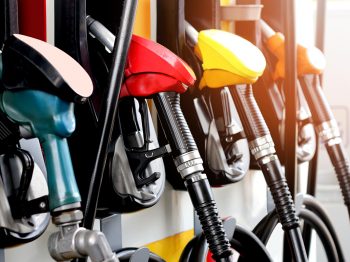e-fuels “won’t fundamentally change future powertrain mix in Europe”, says ICDP
The rise of carbon-neutral e-fuels could offer a reprieve to internal combustion engine (ICE) vehicles, but battery electric vehicles (BEVs) and possibly hydrogen fuel cell electric vehicles (FCEVs) will likely be the core powertrains of the future.
Steve Young of automotive retail and aftersales consultancy ICDP has penned an article for Cox Automotive’s latest AutoFocus magazine, saying there is real potential for wider usage of e-fuels, but they won’t completely displace BEVs and FCEVs.
e-fuels – liquid or gaseous forms of energy produced using renewable energy – can be used as a drop-in replacement for petrol or diesel in ICE vehicles.
While they’re currently the preserve of “lifestyle brands” and “niche applications”, e-fuels have been in the news this spring after the EU agreed an e-fuels exemption in its 2035 combustion engine ban following pressure from Germany and its car making industry. In recent days, Ferrari has said it plans to continue building internal combustion engine cars powered by e-fuels, while still also launching its first BEV in 2025.
Although the UK has confirmed that it’s not looking to factor in e-fuels into the 2030 ICE ban, despite calls from the Transport Committee and other organisations, Steve Young of ICDP said there was a potential that e-fuels could be a viable longer-term option – even though they’re not available or affordable for general use today.
He added that ‘blending’ e-fuels with conventional fuels could be a worthwhile step in eventually making the greener variant more widely available and cheaper, while slashing CO2 emissions and paving the way for industrial-scale production.
“Blending just 5% e-fuels with conventional fuel will save 60 million tonnes of CO2 emissions annually,” he said. “Hence, it makes a meaningful difference, and progressing the blend to 100% over time is a way to allow production capacity to be brought onstream progressively as costs come down.”
Young said that the European Commission had agreed that a new vehicle category would be created for ICE cars that run on carbon-neutral fuels. It’s assumed that this will be done through some form of electronic monitoring in the car to ensure an e-fuel is being used.
“The existing 2035 legislation will be locked into EU law first,” Young elaborated. “Following this, a new regulation will be proposed to create the new vehicle category and define how the e-fuels concession will be applied. The Commission has committed to bringing this regulation forward in a form that is difficult under EU procedures for other countries to block, giving Germany some confidence that the regulation will be enacted even whilst protests continue from other states and lobbying organisations.”
High-profile protests include a campaign by eco group Transport & Environment at Berlin’s Brandenburg Gate; they claim that e-fuel cars could replace between 26 and 46 million BEVS by 2050, more than 10% of the European market.
But Young concluded: “The ICDP view is that this concession will not fundamentally change the future powertrain mix for Europe from 2035, with BEVs remaining the core technology and potentially hydrogen FCEVs in a supporting role.”
Cox Automotive’s insight and strategy director Philip Nothard agreed that zero-emission ICE vehicles could have a place in the future.
He said: “The combustion engine in its current form clearly does not have a future. And although its eventual make-up is yet to be finalised, it’s clear that a mix of fuel compulsions will power it, whether electric, hydrogen or e-fuels.
“It’s notable that some OEMs are investing heavily in the development of e-fuels. Certain factions may be completely opposed to their production on an industrial scale. Still, it’s clear that developing the complex and expensive process of making e-fuels could help bolster wider usage and offer ICE vehicles something of a reprieve.
“Cox Automotive will support the sector with insight and industry-leading solutions as the story of alternative fuels becomes more apparent.
To read ICDP’s analysis in full, access Cox Automotive’s AutoFocus insight update here.


